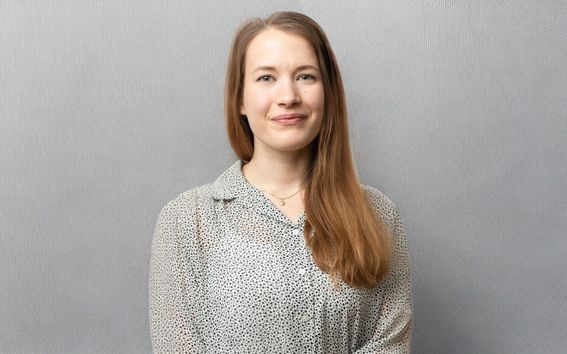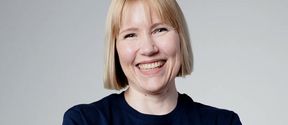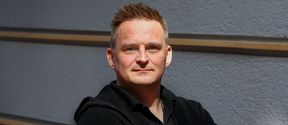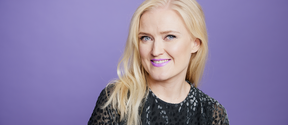Sonja from Kapacity.io: "Having true desire to make a meaningful impact through your business idea is crucial"
Kapacity.io’s mission is to create a 100% renewable society by focusing on sustainable buildings by providing energy optimization and demand response services that reduce energy costs in buildings.

Hi Sonja, could you give us a short explanation of what Kapacity.io does and what is your mission?
Kapacity.io’s mission is to create a 100% renewable society by focusing on sustainable buildings. We achieve this by providing energy optimization and demand response services that reduce energy costs in buildings. Our software connects remotely to building management systems and distributed energy resources, such as heat pumps. This connection allows us to adjust heating, ventilation and air conditioning energy consumption in real time.
Kapacity was founded in 2020, and we’re currently a team of seven people, located in Helsinki.
What problem is Kapacity solving?
The real estate sector is responsible for approximately 40% of global CO2 emissions, and the number is similar in Finland. It’s a huge portion, and something that needs to be addressed to meet the carbon neutrality goals set by Finland and Europe.
Why are you focusing on energy optimization and demand response services for buildings in particular?
In the future, renewable energy will become abundant, and its marginal cost will be extremely low. However, this does not mean that we should disregard energy efficiency or be careless about our energy consumption.
The production of renewable energy, such as solar or wind power, depends on the weather. In other words, on a windy or sunny day we will have a lot of energy in the grid whereas on other days, there will be less energy available. Traditionally, this imbalance has been addressed by adjusting the supply in the grid with fossil-based power plants. Today, and increasingly in the future, we will have to focus more on adjusting the demand side to balance the grid. This means that we will either increase or decrease the electricity consumption of assets depending on the amount of electricity available in the grid.
Compared to district heating or other traditional heating methods, heat pumps offer tremendous efficiency, being up to 3-4 times more efficient. By focusing on heat pump control through software, we enable real estate owners to save on energy costs and reduce CO2 emissions as they can leverage predictive control, demand response and cut peak power consumption.
The electricity market has gone through some turbulence in the past few years. Has this affected Kapacity.io and what does your journey look like so far?
It has certainly been an exciting journey for Kapacity.io since its founding in 2020. The market landscape has changed significantly in the past few years, with electricity prices fluctuating and then nearly tripling from what they used to be back in 2020.
The approval of the European Green Deal in 2020 has also made the market favorable to us as one of the deal’s key principles is prioritizing energy efficiency, improving the energy performance of our buildings and developing a power sector based largely on renewable sources. We believe that we’re able to help building owners in the future to save so much more on their electrification projects.
You studied energy technology at Aalto University School of Engineering and even obtained a PhD in the field, very impressive! What made you choose energy technology and how has your time at Aalto helped you reach the point where you are now?
I first developed an interest in energy technology back in middle school when I watched the documentary film An Inconvenient Truth where Al Gore discusses the energy industry and its role in the climate crisis. A few years later, while applying to universities, the Fukushima nuclear disaster occurred, making energy technology feel like a very relevant field to study.
My time at Aalto, from my bachelor's studies to my PhD studies, was an overall fantastic experience. Aalto allows students to pursue their interests rather freely, which suited me very well. My studies at Aalto, PhD studies in particular, taught me valuable skills in analytical and critical thinking, perseverance, and an understanding of the complexity of the world.
I don’t think that a formal education is necessarily required to start your own company, but it certainly helps a great deal. During my time at Aalto, I learnt that your initial ideas, whether related to the topic of your dissertation or your business idea, aren’t often that original and have already been explored by numerous others. To succeed, you need to be persistent and critical of your own thinking, and keep on trying and searching until you come up with something not a lot of people have thought of before.
During my time at Aalto, I also made some great connections across academia as well as various industries and companies. Thanks to Aalto’s network and support, I had the opportunity to complete a part of my PhD studies at UC Berkeley in California, something I’m truly grateful for.
Speaking of connections, you also met Kapacity’s co-founders Jaakko Rauhala and Rami El Geneidy through Aalto, right?
That’s true. I initially met both Jaakko and Rami during my freshman year at Aalto over a decade ago, although it was years later that we reconnected and started Kapacity.io.
What advice would you give to people aspiring to start an impact-driven startup?
I would say that having the right motivation and a true desire to make a meaningful impact through your business idea is crucial. Not all startups become immediate success stories, but intrinsic motivation will help you stay focused and push through challenging times to reach your goals.
Show other posts from this blog

Johanna from Relex: "Find a problem that is relevant and above all, meaningful to you"
RELEX Solutions helps retailers optimize their supply chain by enhancing adaptability and efficiency across the consumer goods value chain.
Peter from Vensum: "It’s crucial to have a clear vision of the impact you aim to make. "
Vensum’s story was ignited by the urgent need to address some of the main problems our energy system will face in the near future.
Upright: Enhancing the understanding of the true impact that companies have on the world
Especially the largest companies in the world have come to realise that measuring net impact is now an issue of “do or die.”